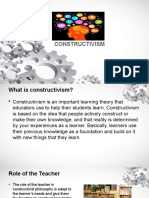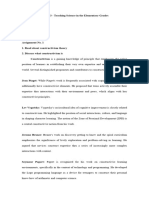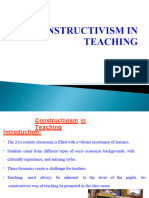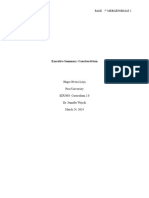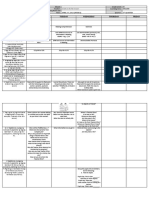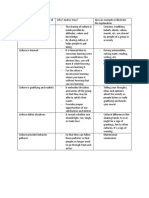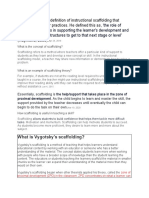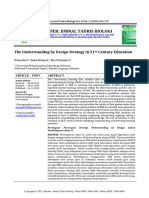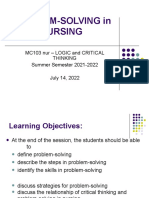0% found this document useful (0 votes)
7 views2 pagesConstructivism Assignment
Constructivism is an educational philosophy that emphasizes active learner participation in knowledge construction through experiences and social interactions. Key thinkers like Piaget, Vygotsky, Dewey, and Bruner have shaped its principles, which advocate for learner-centered curricula, collaborative teaching methods, and continuous assessment. Its relevance today lies in fostering critical thinking and adaptability, essential skills for the 21st century, despite challenges in implementation.
Uploaded by
mirzaabdulkareembaigCopyright
© © All Rights Reserved
We take content rights seriously. If you suspect this is your content, claim it here.
Available Formats
Download as DOCX, PDF, TXT or read online on Scribd
0% found this document useful (0 votes)
7 views2 pagesConstructivism Assignment
Constructivism is an educational philosophy that emphasizes active learner participation in knowledge construction through experiences and social interactions. Key thinkers like Piaget, Vygotsky, Dewey, and Bruner have shaped its principles, which advocate for learner-centered curricula, collaborative teaching methods, and continuous assessment. Its relevance today lies in fostering critical thinking and adaptability, essential skills for the 21st century, despite challenges in implementation.
Uploaded by
mirzaabdulkareembaigCopyright
© © All Rights Reserved
We take content rights seriously. If you suspect this is your content, claim it here.
Available Formats
Download as DOCX, PDF, TXT or read online on Scribd
/ 2



